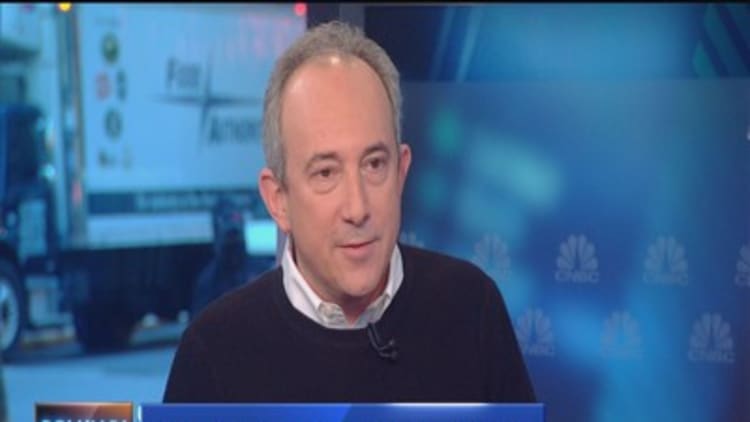
While medical advances that seem like science fiction are helping people live longer lives, don't forget about the little things that you can do on daily basis to increase your odds, said Dr. David Agus, a leading cancer specialist to the stars whose patients included the late Steve Jobs and Lance Armstrong.
"We have to focus on prevention because we weren't designed to go into our ninth or 10th decade," Agus told CNBC's "Squawk Box" on Wednesday, promoting his latest book "The Lucky Years: How to Thrive in the Brave New World of Health."
Read MoreCEOs: What's missing in the drug pricing debate
Through a combination of technological developments such as DNA editing and personal responsibility like getting flu shots or sitting for shorter periods of time, humans can live longer, more productive lives, he said.
"There's technology now ... called CRISPR. So for the first time ever we can change one of the 3 billion letters of DNA," he said. "If you have a cancer I can change one of your T cells to attack the cancer."
But all the science in the world won't help people who don't help themselves, said Agus, professor of medicine and engineering at the University of Southern California. "Sitting is the new smoking. If you exercise at the gym, it's great. But sitting for five hours a day is the same on a health basis as smoking a pack of cigarettes." He recommended frequent breaks to combat the negative effects of being chained to a desk all day.
Agus told an anecdote from the time he spend with Steve Jobs, the late Apple co-founder. "When I used to go see Steve, he always said, 'We want to go for a walk. It's for two reasons, because the health benefits are real.' He also said, 'If you're doing a business negotiation with somebody and you're walking. You know when you're going to turn left or right and they don't. It gives you an advantage.'"
Besides Jobs and Armstrong, Agus has cared for Viacom Chairman Sumner Redstone, the late Sen. Ted Kennedy and Robin Quivers from "The Howard Stern Show."
Agus, a frequent guest on the Stern show and "CBS This Morning," knows a thing or two about getting up early and not getting a lot of sleep. But he said, "No matter how short it is get up and go to bed at the same time. Your body strives for that regularity."
Read MoreA revolutionary blood test that can detect cancer
Arming people with the knowledge to make better and different lifestyle choices will maximize long-term health benefits, he said, "Big data is what's going to save us in the short run." For example, he said, "An amazing study came out showing that every year you delay retirement you reduce the incidence of Alzheimer's by 3 percent."
Even dieting is undergoing a 21st century upgrade. "When we talk about dieting in the future we will be manipulating the bacteria in our GI tract," Agus said. But even the old adage of moderation is being proven effective, he added. "The amazing thing about a diet, no matter what fad a diet you pay attention to what you eat and what you're doing."
Agus is co-founder of two pioneering personalized medicine companies, Navigenics and Applied Proteomics. His clinical responsibilities include the development of clinical trials for new drugs and treatments for cancer, supported by the National Cancer Institute and other private foundations. He said he has no financial ties to drug companies.
Taking better care of ourselves will allow us to benefit from the new advances in medicine and the personalization of care that's being driven by crunching massive amounts of health data, he said. "What we want to do ... is live long and live quality."


